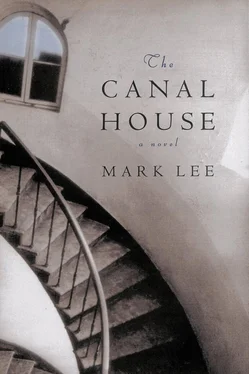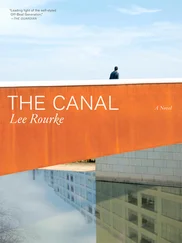“Daniel was a great journalist. Everyone respected him.”
“Respect don’t help you when you’re dead. He spent too much time writing about foreigners and people don’t care about foreigners. Daniel wouldn’t listen to me.”
The conversation wasn’t going the way I had planned. Daniel’s father seemed slightly pleased that his opinion had been vindicated. “What kind of person was Daniel when he was younger?” I asked.
“Well,” he said and paused for a few seconds. “Daniel never played sports, never joined a club, spent all of his time walking around town, looking at things. After his mother got the cancer he said I didn’t take care of her. That is an outright falsehood. Completely untrue. I was always at the hospital when I wasn’t busy.”
There was a tightness in his voice and I wondered what had happened when Daniel’s mother died. I could picture Sergeant McFarland in a clean kitchen with a white tile floor. He had a short haircut and military posture. A woman stood in the background, mixing a pitcher of iced tea.
“I don’t know what to do with his body,” I said.
“You could ship him to Oklahoma. Or you could bury him there. I’ll pay for everything. You just call me back and tell me what it costs.”
I hung up and decided I would never talk to Sergeant McFarland again. The confusion I had felt over the last few days had evaporated and left a residue of anger. It didn’t seem fair by anyone’s faith or morality that Daniel had lost his life in this place. I blamed every person that was connected to the murder. I blamed Daniel himself for the choices he had made. I still remembered our conversations after the airplane crash and his desire to live a good life. Perhaps that was possible in a safe society where people respected each other and obeyed the traffic signs.
I considered a funeral at Bracciano but rejected that idea. If Julia wanted to live there, then the death would always be with her. If she sold the place, strangers would own Daniel’s grave. After walking around Dili for a few hours, I decided to buy a plot at the local cemetery. I dropped by the Seria to tell Billy about my decision; he was packing up to fly back to London.
“Thanks for your help,” I said. “I can handle it from here.”
We stood on the bow of the ship and gazed out at Dili. The landing craft the Indonesians had used to invade East Timor so many years ago were still rusting on the beach where they’d been abandoned. UN Land Rovers and army trucks moved slowly up and down the waterfront boulevard.
“Take care, Nicky. Still a lot of crazies running around.”
“I know.”
I held out my hand, but Billy pushed it aside and gave me a bear hug. When I turned away, I saw that Pak was watching us. The old man nodded and winked as if we both knew the punch line to a private joke.
I hitched a ride on the back of an army truck and went to Santa Cruz Cemetery in the southeast part of the city. A concrete wall surrounded the grounds. Its spiked entrance gates had been ripped off their hinges and dumped into the street as if a thousand evil spirits had burst out of their coffins and escaped. Most of the tombs were narrow boxes of blue tile or limestone with a stone cross at one end. Families were buried together, each name painted on the stone. The first names on the family memorials were large and significant, then more deaths had been added in smaller print. Over the years, the names and dates pushed up against each other, as parents and children had been killed in successive waves of arrests and executions.
The cemetery was overgrown with creeper vines and stalks of bamboo and there was a sloppy, haphazard feeling about the place. I was just about to leave when a young boy approached me. He made a digging motion with his hands. I nodded and he came back with the chief gravedigger, a barefoot old man called Afonso. “Posso ajudar?” he kept saying. May I help you? When I told him that my amigo had just died, he showed me two narrow patches of ground, surrounded by tottering crosses. Errado , I told him. Wrong. Very wrong. I’d look for another graveyard. Afonso nodded his head and took me to a space by the wall surrounded with hibiscus. Even in the dry season, there were red flowers and lush green leaves. It was better than a municipal plot in Tulsa, with half-dead grass and some guy on a tractor mower.
Jenkins and four Gurkhas picked me up at the hotel the next morning. We drove out to the Interfet camp, placed the body in a coffin, and went to the cemetery. Other journalists in Dili had learned about the funeral, and a crowd of reporters, photographers, and television cameramen was waiting beside the broken gates. I got out of the truck and everyone clustered around for an improvised news conference. Tristram Müller asked me the first question; then everyone else had their turn. How was he killed, Mr. Bettencourt? Did they catch the guys who did it? What was the last thing you heard your friend say? They asked me if Daniel was married and then seemed annoyed that I didn’t know his age. “Give me a rough guess,” said an Australian reporter and I made up a number. All the journalists glanced at one another as if to say, Do we agree on this? before writing it down.
Afonso and the boy approached us carrying their shovels. They guided the truck down a dirt pathway to a hole dug near the wall. The Gurkhas pulled Daniel’s coffin out of the truck, then lowered it into the ground. I heard the rapid click-click-click of an auto-advance and saw a Dutch photographer working. I had done the same thing countless times, crouching down and snapping in a new lens, bending and jumping and twisting my body around for a good shot.
Jenkins cleared his throat and glanced over at me. Obviously, he felt that the Official Best Friend should say something. When I remained silent he took a step toward the grave. Clods of dirt and a few white pebbles dribbled down onto the top of the coffin.
“I talked to Private Rai before he flew home. He told me what happened after my men were attacked in Liquica. The militia was going to kill everyone until Mr. McFarland stepped forward. He saved the lives of hundreds of people. God bless him. He was a brave one. That’s all I’ve got to say.”
Jenkins stepped back and gave me another look. An American television cameraman zoomed in on my face and his soundman extended the boom. I knew that I should say something about my friend’s death, but I felt like shouting insults. I hated the reporters and the photographers. I hated the tropical sun and the burned-brown hills and the ragged palm trees.
“Good-bye, Daniel,” I said. “I wish we hadn’t come to this place.”
A group of children ran toward us and I turned away from the grave. Sister Xavier was leading her parishioners into the cemetery. They were clapping and singing hymns in Portuguese. First the women would sing a phrase, then the men, and then everyone would join together for the chorus. The crowd flowed around the tombs and gravestones like a brightly colored wave.
Sister Xavier took my hand. She smiled shyly as if we had just met again after a long separation. She raised her hand and the crowd stopped singing. The refugees from Liquica had plucked flowers from the bushes and trees as they marched in from the airport. Each person stepped forward and said something in Tetum or Portuguese, then tossed their flower into Daniel’s grave.
CAPTAIN JENKINS TOLD me that the Gurkhas had begun to search for the militiamen who had been at Liquica; every soldier in the regiment had volunteered for the assignment. Jenkins had picked two teams of eight men and hired local guides at the airport refugee camp.
The Gurkhas found one of the killers right away, then tracked down the others as they tried to reach West Timor. Some people said there was a final shoot-out near the border. Others heard that Cristiano’s militiamen surrendered and begged for mercy. Each story had the same conclusion: there were no prisoners.
Читать дальше












